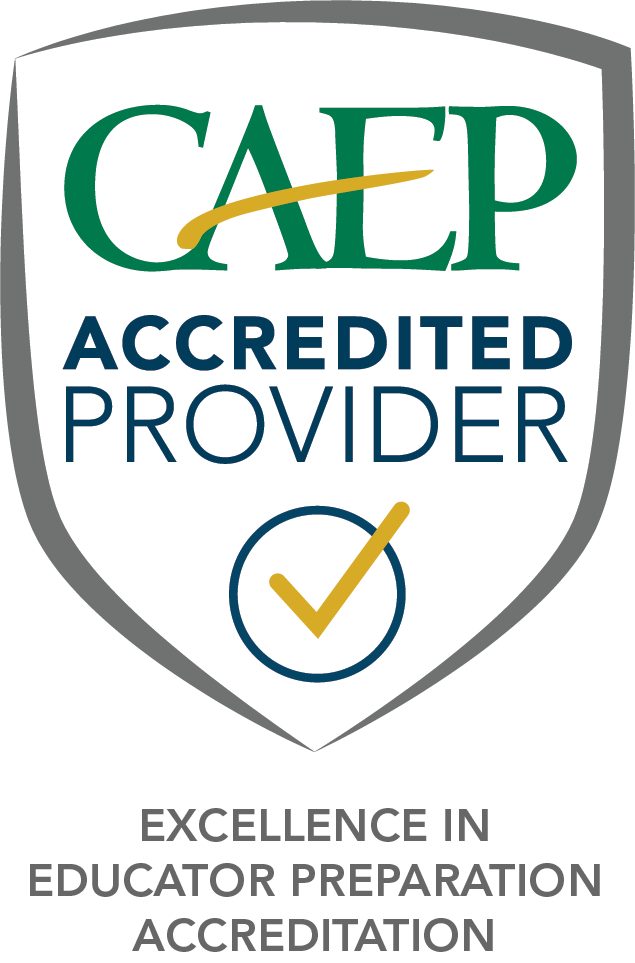CAEP Accreditation
University of Bridgeport’s Graduate School of Education (SOE) received National Recognition for the Initial Licensure Programs from the Council for the Accreditation of Educator Preparation (CAEP) in the fall of 2018. The School of Education will undergo their next review cycle in the spring of 2025.
The School of Education will add to the next review cycle a review of the advanced programs. The CAEP Advanced Program Standards were not yet available in 2018 when our initial review was conducted; the Advanced Programs maintain Connecticut State Accreditation through 2025.
All initial and advanced programs within University of Bridgeport’s School of Education are fully approved by the State of Connecticut’s Board of Education.
CAEP Accountability Measures will be available shortly.

What is CAEP?
The Council for the Accreditation of Educator Preparation (CAEP) accredits University of Bridgeport’s School of Education. CAEP promotes excellence in educator preparation through quality assurance and continuous improvement.
CAEP is the only recognized national accreditor for educator preparation.
-
Vision: Excellence in educator preparation accreditation.
-
Mission: CAEP advances excellent educator preparation through evidence-based accreditation that assures quality and supports continuous improvement to strengthen P-12 student learning.
- Accreditation is nongovernmental activity based on peer review that serves dual functions of assuring quality and promoting improvement.
CAEP accreditation site-visit call for third party comments
The School of Education at University of Bridgeport is hosting an accreditation visit by the Council for the Accreditation of Educator Preparation (CAEP) on June 2-4, 2025. Interested parties may submit third-party comments to the evaluation team.
Please note that comments must address substantive matters related to the quality of professional education programs offered and should specify the party’s relationship to the provider (i.e., graduate, present or former faculty member, employer of graduates).
We invite you to submit written testimony to:
CAEP
1140 19th Street NW, Suite 400
Washington, DC 20036
Or by email to:
- In CAEP’s performance-based system, accreditation is based on evidence that demonstrates that teacher candidates know the subject matter and can teach it effectively so that students learn. In the CAEP system, Educator Preparation Program (EPP’s) must prove that candidates can connect theory to practice and be effective in an actual P-12 classroom.
- A professional education provider that is accredited by CAEP is expected to be involved in ongoing planning and evaluation; engaged in continuous assessment and development; ensure that faculty and programs reflect new knowledge; practice, and technologies; and be involved in continuous development in response to the evolving world of education and educational reform.
- Comments must address substantive matters related to the quality of professional education programs offered, and should specify the respondent’s relationship, if any, to the institution (i.e., graduate, present or former faculty member, employer of graduates). Copies of all correspondence received will be sent to the university for comment prior to the review. No anonymous testimony will be considered.
Your future starts today!
- Apply online!
- Financial aid is available, and we accept applications on a rolling basis
- We have comprehensive support services that will get you through college and into a great career
